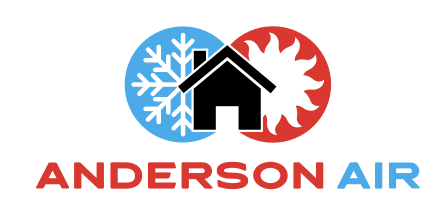When to Replace Your Heat Pump: Signs and Considerations
Your heat pump plays a crucial role in maintaining comfort and efficiency in your home, providing both heating and cooling throughout the year. However, like any mechanical system, heat pumps have a finite lifespan and eventually require replacement. Knowing when to replace your heat pump is essential to avoid unexpected breakdowns and ensure optimal performance.
In this comprehensive guide, we’ll explore the signs that indicate it’s time for a heat pump replacement, as well as important considerations to keep in mind when making this decision. From understanding the lifespan of your heat pump to assessing its energy efficiency and performance, we’ll provide valuable insights to help you make an informed choice and maintain comfort in your home.
Signs of Failing Heat Pump
As your heat pump ages, watch out for signs like decreased efficiency, frequent repairs, and inconsistent heating or cooling. These indicators suggest it may be time for a heat pump replacement.
- Age of the Heat Pump: The age of your heat pump is a significant factor in determining whether it’s time for a replacement. Most heat pumps have a lifespan of 10-15 years, depending on factors such as usage, maintenance, and environmental conditions. If your heat pump is approaching or exceeding this age range, it may be more cost-effective to replace it rather than continue investing in repairs.
- Decreased Efficiency: As heat pumps age, they may become less efficient at heating and cooling your home. You may notice an increase in energy bills despite no change in usage, indicating that your heat pump is working harder to maintain comfortable temperatures. If your heat pump’s efficiency has noticeably declined, it may be time for a replacement to improve energy efficiency and reduce operating costs.
- Frequent Repairs: If you find yourself calling for heat pump repairs more frequently, it could be a sign that your system is reaching the end of its lifespan. While minor repairs are common, frequent or costly repairs may indicate underlying issues that warrant a replacement. Investing in a new heat pump can save you money in the long run by reducing repair costs and improving reliability.
- Inconsistent Heating or Cooling: A failing heat pump may struggle to maintain consistent temperatures throughout your home, resulting in uneven heating or cooling. If you notice significant temperature fluctuations or rooms that are consistently too hot or too cold, it could be a sign that your heat pump is nearing the end of its lifespan. Upgrading to a new heat pump can provide more consistent comfort and better performance.
Heat Pump Replacement Considerations
When considering a heat pump replacement, prioritize factors such as energy efficiency, size, and warranty coverage. Upgrading to a more efficient model can lead to long-term savings and improved comfort.
- Energy Efficiency Upgrade: When replacing your heat pump, consider upgrading to a more energy-efficient model. Newer heat pumps often feature advanced technologies that improve energy efficiency, resulting in lower utility bills and reduced environmental impact. Look for heat pumps with high Seasonal Energy Efficiency Ratio (SEER) and Heating Seasonal Performance Factor (HSPF) ratings to maximize energy savings.
- Size and Capacity: Ensure that your new heat pump is properly sized and matched to your home’s heating and cooling needs. An undersized heat pump will struggle to maintain comfortable temperatures, while an oversized unit may cycle on and off frequently, leading to reduced efficiency and comfort. Consult with a professional HVAC technician, like those at Anderson Air Wilmington, to determine the appropriate size and capacity for your home.
- Warranty Coverage: Consider the warranty coverage offered by different from manufacturers when selecting a heat pump replacement. A comprehensive warranty can provide peace of mind and protect you against unexpected repair costs. Be sure to review the warranty terms and conditions carefully and choose a heat pump with adequate coverage for both parts and labor.
FAQs About Heat Pump Replacement
Got questions about replacing your heat pump? Learn about the average lifespan of heat pumps, the benefits of upgrading to energy-efficient models, and the importance of professional installation and disposal of old units.
Q: How long does a heat pump typically last?
The lifespan of a heat pump varies depending on factors such as usage, maintenance, and environmental conditions. On average, heat pumps have a lifespan of 10-15 years.
Q: What are the benefits of upgrading to a more energy-efficient heat pump?
Upgrading to a more energy-efficient heat pump can result in lower utility bills, reduced environmental impact, and improved comfort and performance. Newer heat pumps often feature advanced technologies that maximize energy efficiency and optimize indoor comfort.
Q: Can I replace my heat pump myself, or should I hire a professional?
While some homeowners may be tempted to replace their heat pump themselves, it’s best to hire a professional HVAC technician for this task. Heat pump replacement requires specialized knowledge and skills to ensure proper installation and performance. A professional technician can assess your home’s heating and cooling needs, recommend the right heat pump for your space, and ensure a seamless installation process.
Q: What should I do with my old heat pump after replacement?
After replacing your old heat pump, it’s important to dispose of it properly. Many HVAC companies offer recycling programs for old heat pumps, allowing them to be recycled and reused in an environmentally friendly manner.
Conclusion
Knowing when to replace your heat pump is essential to maintain comfort, efficiency, and reliability in your home. By recognizing the signs of a failing heat pump and considering important factors such as energy efficiency, size, and warranty coverage, you can make an informed decision that meets your heating and cooling needs.
With Anderson Air’s expertise in heat pump replacement and installation, you can trust that your home comfort needs are in good hands. Don’t wait until your heat pump fails completely; schedule a consultation today to explore your options for replacement and ensure continued comfort and efficiency in your home.
